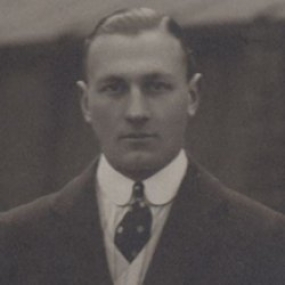Dr Reginald William Ironside

06/07/1881 to 21/09/1959
Place of birth: Hampstead, London
Nationality: British
CRN: 715470
Also known as: Reggie
Education and qualifications
|
General education |
Educated privately in London; Pembroke College, Cambridge; Westminster Hospital Medical School where he was University Scholar in Anatomy & Physiology in 1904. |
|---|---|
|
Primary medical qualification(s) |
MBBCh, Cambridge, 1906 |
|
Initial Fellowship and type |
FFARCS by Election |
|
Year of Fellowship |
1948 |
|
Other qualification(s) |
BA, 1901; BCh, 1914; MB, 1935 (awarded by thesis: ‘An explosion in anaesthetic apparatus’; all from Cambridge |
Professional life and career
Postgraduate career
First appointment was senior house surgeon at the Westminster followed by assistant casualty medical officer at Great Ormond Street Hospital. He then combined GP in South Kensington with being physician to Queen Mary’s Hospital for the East End, also being appointed clinical assistant, usually a short term appointment, at Great Ormond Street. Pre-WW1 Medical Directories record an appointment as anaesthetist at the Samaritan Hospital although his BMJ obituary states that he did not develop his interst in anaesthetics until after the war. During that conflict he served in France, first as medical officer with the 10th Hussars, later in command of a Casualty Clearing Station outside Boulogne. His involvement in anaesthesia certainly increased after WW1 with appointments at West London and Samaritan Hospitals. About 1930 he dropped the latter and replaced it with the Freemasons (later Royal Masonic) Hospital, this situation continuing until after WW2. On the inception of the NHS he became consultant & lecturer in anaesthetics at the West London Hospital.
Professional interests and activities
Particualrly interested in anaesthesia for abdominal & gynaecological cases, and much in demand as an anaesthetist for children. Awarded the DA(RCP&S) in 1935 without examination, and was one the last to continue working (successfully it is said) in both GP and anaesthesia. No retirement date has been identified.
Other biographical information
Son of a GP in London, his studies were interrupted by service with the Royal Fusiliers, and he received the South African War Medal in 1902.
Author and Sources
Author: Dr Robert Palmer & Prof Tony Wildsmith
Sources and any other comments: Obituaries: Anaesthesia 1960; 15: 196. & BMJ 1960; 1: 64
